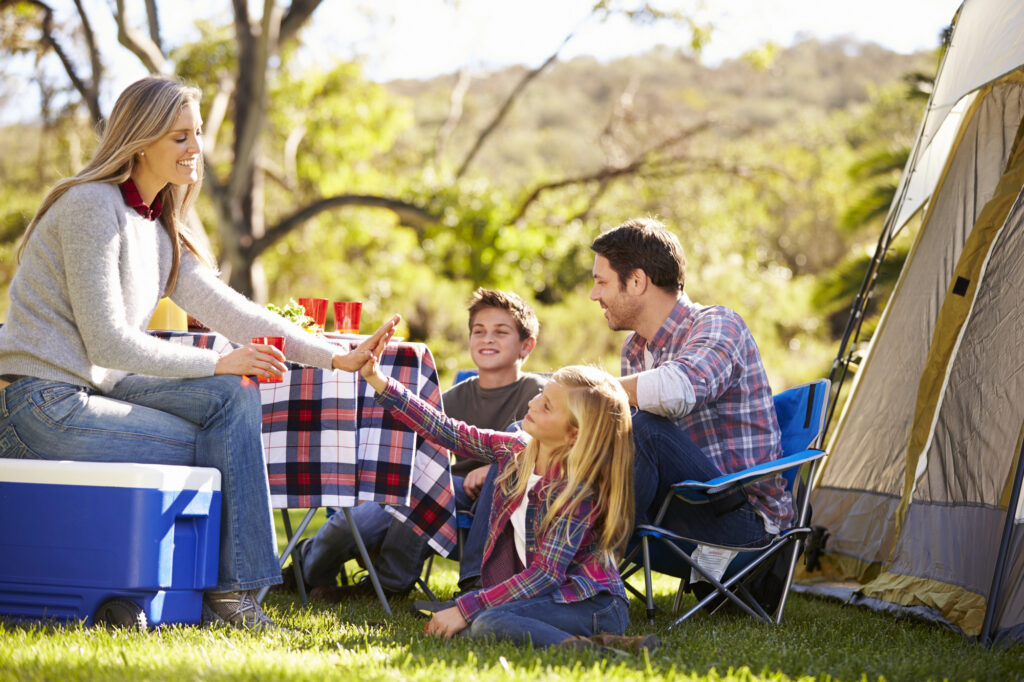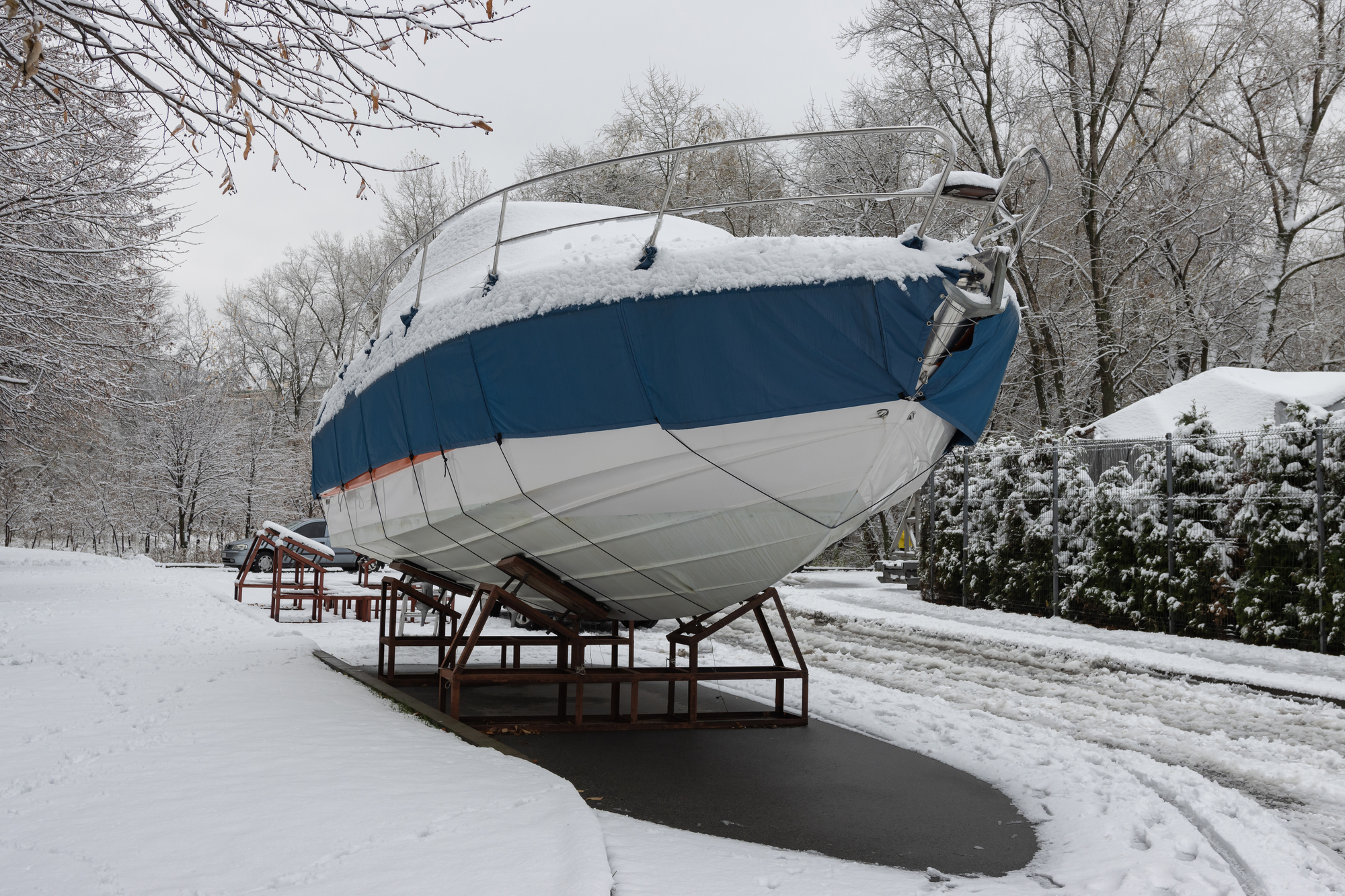Camping gear is an essential part of any outdoor adventure, but it can be tricky to store, especially when it changes with the seasons. From tents and sleeping bags used in the summer to insulated gear for winter camping, keeping everything organized year-round ensures your gear stays in top condition and is always ready for your next adventure. Additionally, protecting it from extreme temperatures, moisture, and humidity prevents mildew, mold, and premature wear.
In this guide, we’ll cover how to store and organize seasonal camping gear to protect it from wear and tear, so you can maximize the life of your equipment and easily access it when you need it most.

Planning Your Camping Gear Storage System
Assess Your Space
Before exploring camping gear storage options, evaluate your available space. Whether you have a large garage, a small closet, or limited storage options, knowing what space you’re working with will help you determine how to store your equipment effectively. Some items may be best kept at home, while others may need extra protection through external storage.
Use Storage and Organization Supplies
Consider using bins, free standing shelving units, or hanging organizers for easy access and protection. Store lightweight gear like sleeping bags or rain jackets in clear bins, and use shelves to organize larger items like tents and backpacks. When storing gear long-term, label each bin with the contents and season to streamline access. Additionally, rotating your gear in and out of storage with the changing seasons can keep your space organized and prevent gear from being neglected.
Seasonal Rotation: Store Off-Season Gear
As the seasons change, rotate your gear to ensure it’s properly stored. For example, store your summer gear, like lightweight tents and cool-weather sleeping bags, in bins when winter comes, and bring out your cold-weather gear when needed. This seasonal rotation will maximize your storage space and keep everything organized.
Best Practices for Seasonal Camping Gear Storage
Clean Before You Store
Before storing anything, make sure it’s clean. Dirty or wet gear can develop mildew, mold, or stains that may be difficult to remove later. Clean your tents, sleeping bags, cooking gear, and other camping essentials to ensure they stay fresh. For example, dry tents completely before folding them up to prevent mold, and wash sleeping bags and jackets according to the manufacturer’s instructions to preserve their insulation.
Use Proper Containers
Choose containers that protect your gear from dust, moisture, and pests. Clear, airtight bins are ideal for storing small items like cookware, first-aid kits, and clothing, as they keep everything visible and protected. Consider using large storage bags or breathable garment bags for bulkier items like sleeping bags or tents.
Weather protection for Sensitive Gear
Certain items, like electronics or down sleeping bags, require specific climate conditions for storage. To prevent damage, store these items in a cool, dry place with protection from dampness, and try to avoid areas with extreme temperature fluctuations.
How to Organize Your Seasonal Gear for Quick Access
Label and Categorize Your Gear
Organization is key when storing camping gear, especially if you have seasonal items. Label all your bins and shelves with the contents, and organize gear by season, type of activity, or gear category (e.g., cooking gear, hiking gear, or winter gear). This makes it easy to find what you need, even when you’re in a rush to pack for your next adventure.
Use Easy Access Strategies
Store your most frequently used items in easy-to-reach places. Use free-standing shelves for gear you need access to more regularly, like tents or backpacks, and place less-used items in bins. Keep everything labeled and organized so everything is ready to go when it’s time to load up.
Where to Store Seasonal Camping Gear
Home Storage
If you have space inside your home to keep all your seasonal gear in the off-season, this can be an acceptable solution as long as it’s kept dry and secure. Many Utahns are true outdoor enthusiasts, however, and seasonal gear can quickly start to pile up and take up a significant amount of space – especially in an apartment, condo, or smaller home. Since these items are only used for a portion of the year, why let them monopolize your space the whole year round? If you have a lot of outdoor and camping gear it may be worthwhile to rent a small and affordable self-storage unit nearby to keep your home clear, and more limited to daily use items.
External Storage Solutions
Using an external storage unit offers several benefits for your seasonal camping gear. It provides a great option to protect your gear from extreme weather, dampness, and pests. Storage units free up space at home, so your garage or closets don’t get overcrowded with off-season equipment. Additionally, many storage facilities offer convenient access, so you can pick up or drop off your gear whenever you need it, making last-minute camping trips a breeze.
Using an external storage solution like Utah Storage Center guarantees your gear is safe and easily accessible for your next adventure. Whether it’s your RV, pop-up camper, or camping essentials, USC offers flexible options that suit your needs.
Final Thoughts
Effectively storing and organizing your camping equipment ensures it stays in top condition and is always ready when you need it. With smart storage solutions, including external options like Utah Storage Center, you can protect your items and free up space at home. Stay organized, rotate your gear as the seasons change, and enjoy easy access throughout the year. Contact us today to find the perfect storage solution for your needs!




